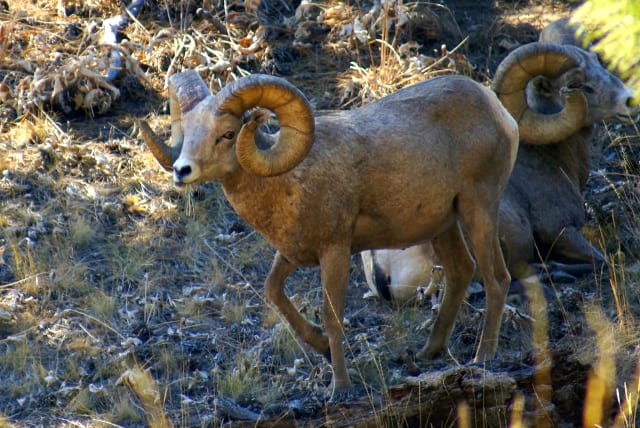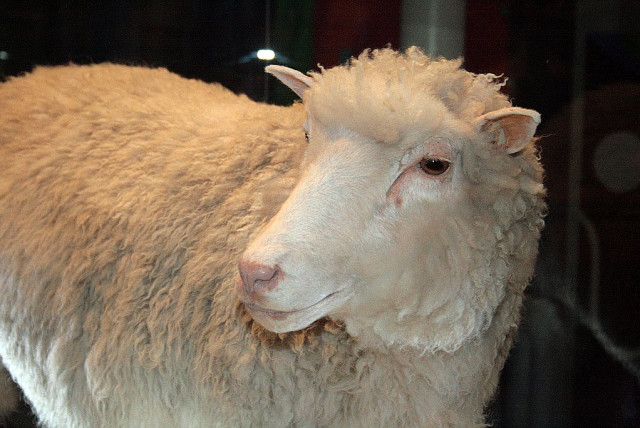Feds bust Montana man for super-sheep semen scheme

Arthur “Jack” Schubarth, 80, of Vaughn, Montana, conspired with at least five other people to import genetic material from foreign sheep species, clone it, and breed new species for trophy hunters.
A Montana man pleaded guilty on Tuesday to two felony wildlife crimes that each carry a maximum of five years in prison and a fine of up to $250,000, ABC reported on Thursday.
His crime: a seven-year plot to genetically engineer, via cloning and ovine surrogacy, a new sheep species for trophy hunters to shoot.
Arthur “Jack” Schubarth, 80, of Vaughn, Montana, conspired with at least five other people between 2013 and 2021 to import genetic material from the largest sheep species in the world—the Marco Polo argali sheep—from Kyrgyzstan to the United States. He then sent the material to a lab to create cloned embryos to implant in the wombs of his own natural American ewes.
The result of the scheme was a genetically pure Marco Polo argali sheep born to his own ewe on his own ranch. Schubarth named the sheep “Montana Mountain King”— MMK for short—and then used MMK’s semen to artificially inseminate other species of ewes—themselves illegal to possess in Montana—to create novel, hybrid sheep, which he smuggled in and out of Montana using forged veterinary documents.
The authorities were not amused. “The kind of crime we uncovered here could threaten the integrity of our wildlife species in Montana,” said Ron Howell, Chief of Enforcement for Montana Fish, Wildlife & Parks (FWP). Marco Polo argali sheep, such as MMK, are not allowed in Montana to protect native sheep from foreign diseases and to prevent hybridization, presumably because the native species are endangered.
The statement issued by the Department of Justice on Tuesday was scant on details about the lab that apparently cloned MMK’s predecessor for Schubarth, though court documents did provide the home states of five of Schubarth’s co-conspirators: three were from Texas, one was from Montana, and one was from Minnesota.

Cloning is a rapidly developing technology
Sheep have held a special place in the cloning imagination since 1996 when a domestic sheep named Dolly was the first animal to be successfully cloned from an adult cell.
In contrast to the MMK scheme, which authorities saw as a threat to the local, protected population of wild sheep, cloning has been proposed as a means to propagate endangered or even extinct species for which there is no viable reproduction chain.
In January 2018, scientists in China became the first to clone a primate, with the cloning of a macaque monkey. A year later, other scientists, also in China, created five cloned monkeys whose genetic code they had intentionally modified using gene-editing technology (CRIPR-Cas9).
The process of cloning a human being (Homo sapiens) would not, in principle, be categorically different from the process of cloning other primate species or other animals generally.
This technology raises ongoing and unsettled questions of bioethics.
The Environment and Climate Change portal is produced in cooperation with the Goldman Sonnenfeldt School of Sustainability and Climate Change at Ben-Gurion University of the Negev. The Jerusalem Post maintains all editorial decisions related to the content.
